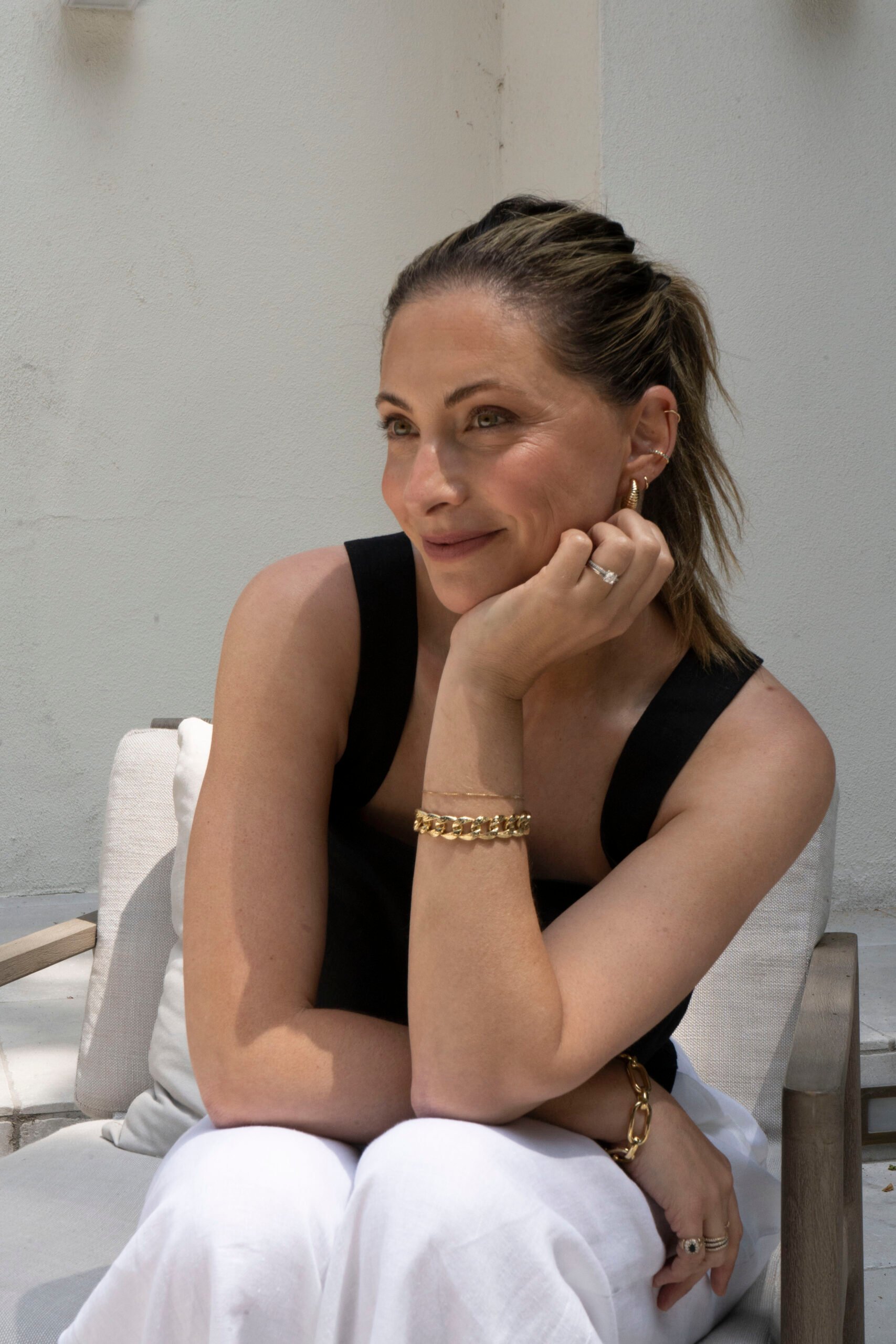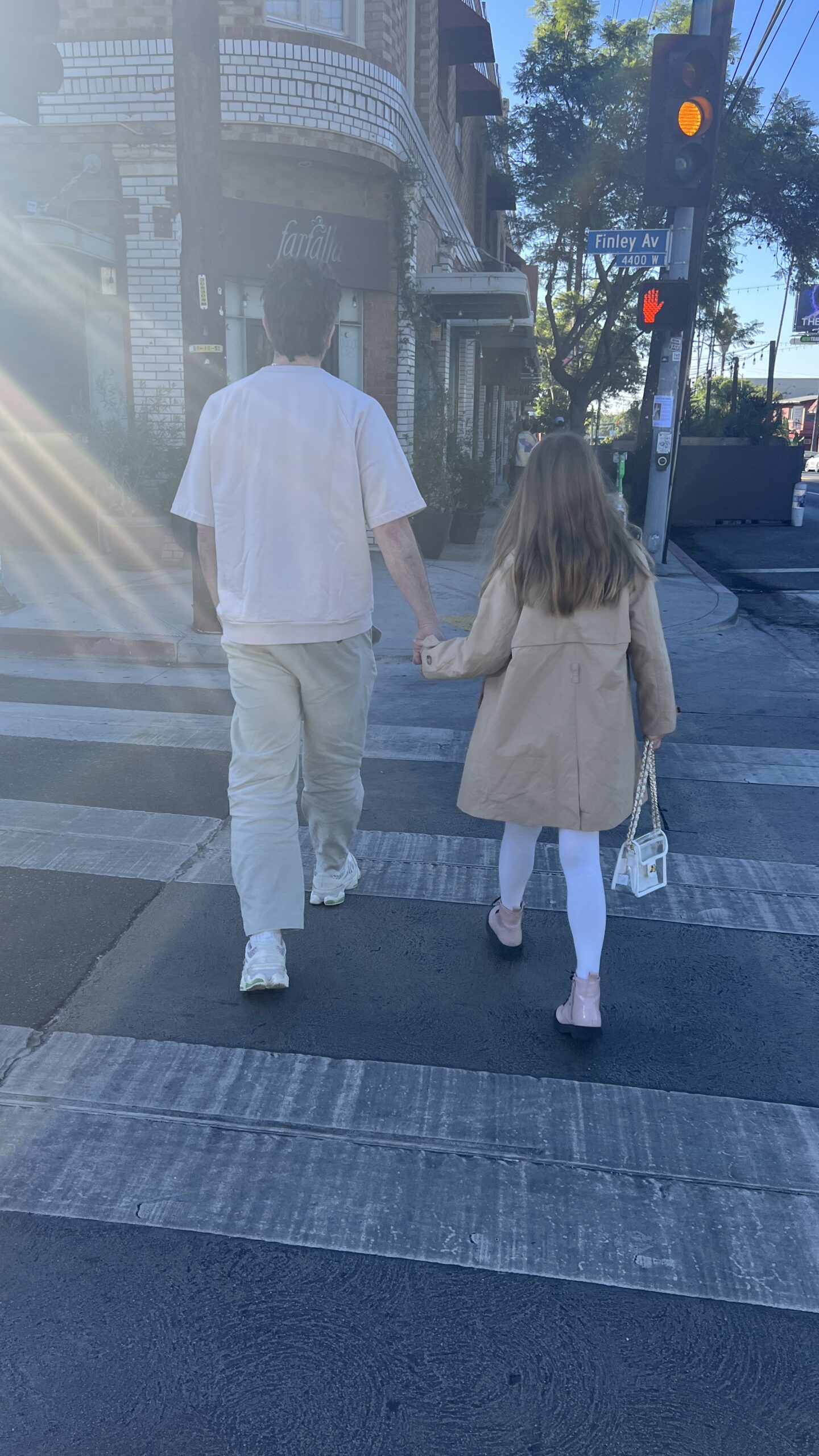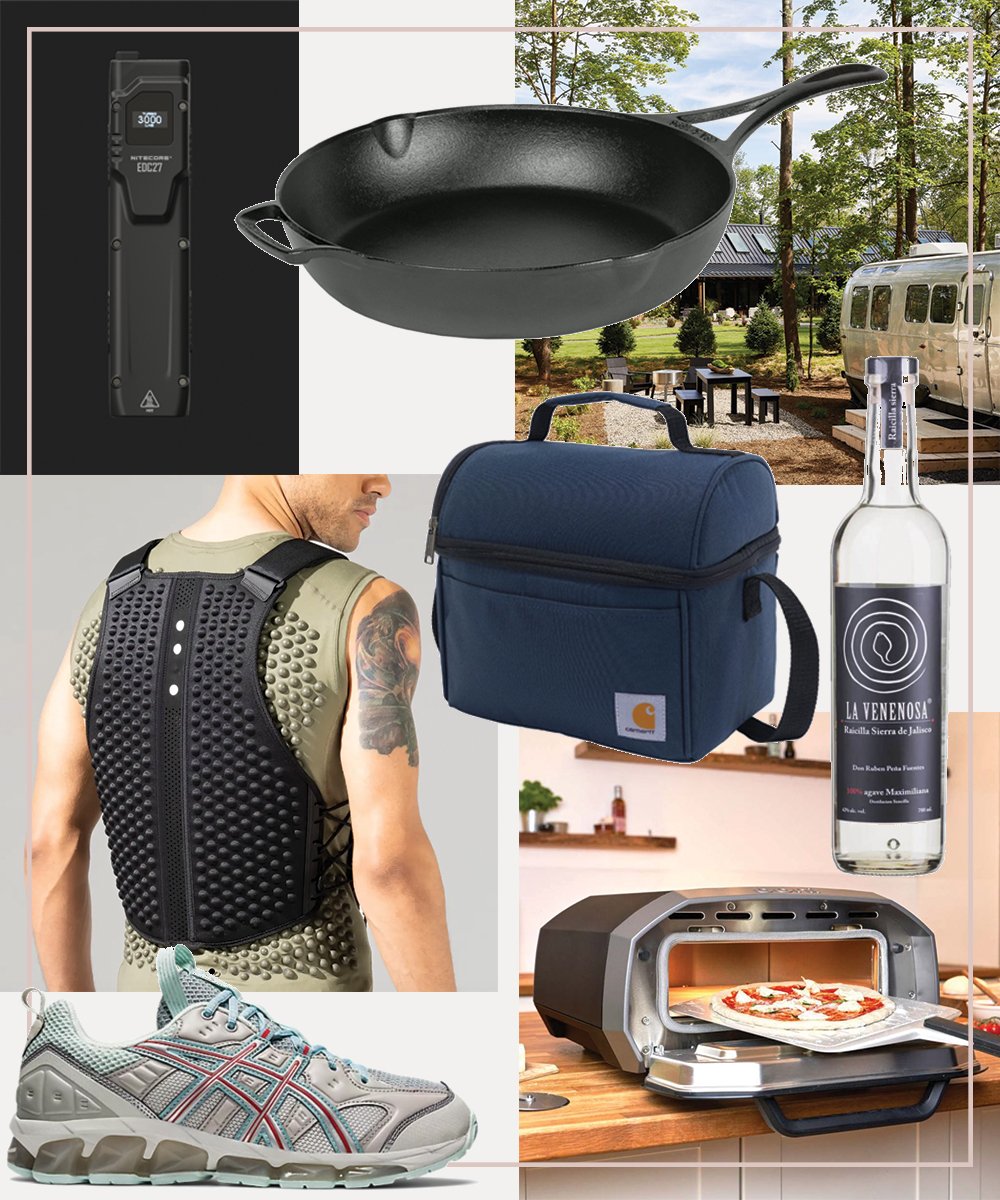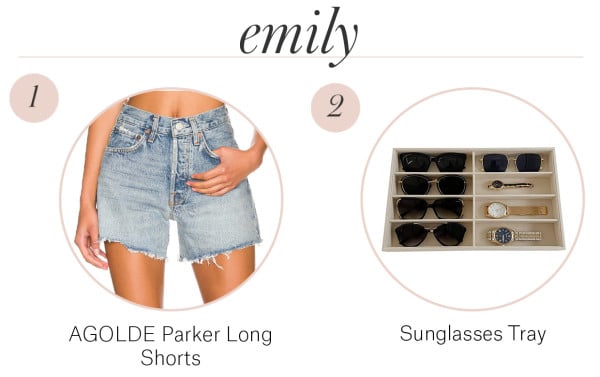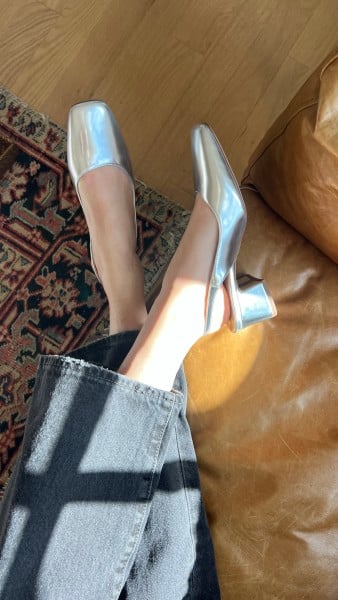
If someone asked you to introduce yourself right now, what would you say? I’m sure I would rattle off my job title, my Zodiac sign, and a joke about being “a crime junkie.” I would then immediately wonder if I came off “too basic.”
Cheugy. WASP. Old money. New money. Outdoorsy. Introvert. Mother of two. A Samantha. There is no shortage of words we pin to people to navigate our relationship with them or away from them. From the political issues we support, to the diets we keep and fashion we wear, it often feels like we’re wearing 37 pieces of flair—that’s an Office Space reference for any Gen Z readers—at any given time.
When I introduce myself or post about my interests on social media, it can be difficult to see myself as anything but a young child, hoping I don’t get picked last to be on someone’s team. It’s the feeling I wanted to leave in grade school, but here I am, a 30-young, married woman wondering if people like me.
Right before my big 3-0 this past April, I thought about what I hoped to leave in my 20s. Along with bad hangovers and being afraid to speak up if the server got my order wrong, I knew I wanted to break up with social labels. I no longer wanted my self-worth or identity to be tethered to a single word. Moreover, I do not want someone else’s relationship to a label to affect the relationship with myself. For the last several months, I’ve put in the work to facilitate a conscious uncoupling with social labels to become what I’ve come to call “unboxable.” Here are the baby steps I’ve taken thus far, in the hopes that they help you, too:
I’ve opened up in past posts about my formative years, growing up in an affluent white community where I often bore the label of “the Black student” or “the token Black friend.” In retrospect, it’s the label I’ve had to endure the longest. I would have to imagine that’s the origin of my label obsession; feeling like an outcast and desperately seeking a sense of belonging and acceptance. People of all races, including my Black peers and relatives, flung their assumptions and preconceived assumptions at me regarding how I should act, talk, and think. If I fell short of an expectation, I wasn’t “Black enough” or I was “white-washed.” I internalized the message at a young age: Everything you like, any music you listen to, every article of clothing you choose to wear or not wear determines your allegiance to a group. Which will you choose today? I moved within Black and white spaces and felt I was constantly doing a do-si-do between feeling like an outcast with one group or a disappointment with another. Until this day, I hold a gaping hole in my head and heart filled with an insecurity that I’m still “not Black enough.”

With high school came social subcategories. I tried cheerleading and bought my clothes from Hollister for a time, hoping to secure my fate as “a prep.” (I failed pretty spectacularly.) By the time I was a Junior, I had traded in my double-popped collars for fedoras, neon V-necks, and an obsession with skulls and snake rings. Yep, I was a “pop scene kid.” On the surface, a label granted me entrance into a group or community. But at its deepest levels, labels gave me permission to love and accept myself.
Caring about high school popularity had its expiration date, but the desire to belong and be liked graduated with me. Over time, the focus I previously put on “sitting at the cool table” shifted to finding identity in where I worked and my hobbies. I spent hours wondering if I wanted to be a “career woman” or a more maternal figure to friends and loved ones. I wondered how many spin classes I had to attend before calling myself a “gym rat.” The number of times I’ve taken a Myers-Briggs test should be illegal. At 30, I can detach myself from the false idols I created. But at 25, I used labels as a guide for what I should be doing in life.
I realized I had an obsession with labels a couple of years into my marriage. In 2018, I was new to the Enneagram, and like many, I got sucked in. (Shout-out to any Enneagram 3s out there!) One night, I had asked my husband for probably the 200th time, “But which number do you think am I? Which number do you think I come off as to people who don’t know me?” He had entertained my questions 199 times before, but this night he looked up and asked with genuine curiosity, “Why do you have an obsession with labels?” I immediately got defensive and asked for past behavior that would prompt such an accusation. He had a list and a point; I was still fixated on how others saw me.

That week, I explained to my therapist that others’ opinions are like mirrors for me; whatever they reflect at me must be how I appear. For example, if someone tells me my performance during a project exceeded their expectations, then I assume the label “overachiever.” Similarly, if someone calls me lazy, I adopt the identity of an under-performer. This is called having a fragile sense of self.
Erika Myers, a licensed professional counselor in Bend, Oregon, puts it well, “Having a well-developed sense of self is hugely beneficial in helping us make choices in life. From something as small as favorite foods to larger concerns like personal values, knowing what comes from our self versus what comes from others allows us to live authentically.”
After my therapy session, I came to understand that though I had spent the last several years cultivating a value system based on free thought, my concern with social labels was holding me hostage to external validation. And to be fully free, I had to stop caring about which boxes I fit into. After all, for some, I may never tick enough boxes to be “X,” and focusing on such will lead to a life of disappointment.
1. I took a break from pop psychology and personality quizzes.
There is a level of embarrassment that comes with this admission since I feel it reveals just how brittle my self-esteem was at a point. But for a few months, I kept a silent vow to myself to not read about the Enneagram, Myers-Briggs, and other articles related to social labels and cultural commentary. I felt my brain was owed a detox and should be filled with topics I couldn’t project onto myself. Instead, I listened to more true crime and found everyday joy in cooking videos and Netflix marathons. I picked up my abandoned love of baking and now turn to kneading bread when I’m stressed.
2. I deleted any applications or activities based on metrics.

I chatted with Leslie on IG Live about this a few months back in a conversation on “The Metrics We Tie to Worthiness.” It turns out, I needed to hit a pause on the relationship I had with my Apple watch, Peloton leadership board, and other vanity metrics disguised as business goals. The numbers weren’t able to tell the full story. Achieving a step goal couldn’t deem me “fit,” coming in last place during a spin class didn’t strip me of being “an active person,” and I am no less or no more of a career counselor based on my client roster. Most importantly, I found that those metrics weren’t an accurate reflection of my happiness. By eliminating numerical distractions, I got to focus on the story I was telling myself.
3. I adopted the mantra, “Two things can be true at once.”
You know that Instagram quote, “I can be both a masterpiece and a work-in-progress.” I’m sure I’ve scrolled past it thousands of times. And while it would receive a double-tap from me, I question how much I truly believed in it until recently.
Being an entrepreneur has given me so many lessons, but the one that I’ve held closest in this season of life is: Two things can be true at once. First, I can hit my largest monthly goal and still feel like a failure. (Check.) I can be happily married and still want my husband and me to work through communication issues. (Check.) I can be a loving friend and a horrible texter. (Check.)
I’ve carried this into how I see myself, too. I can be smart and still make rookie mistakes. I can be kind and still have days I’m not proud of. I can be a good wife and a crappy wife within the same day. I can be cheugy and a baddie all at once! I was, and I am, the only person putting the pressure on me to live and exist in absolute terms.
4. I speak up now when friends attempt to label me, even if it’s a joke.
One label I was terrified to wear? The girl who “couldn’t take a joke.” So I stayed quiet and offered a closed-mouth smile when words and exchanges cut deep. But secretly, I would ruminate over the words people used with me for weeks, even months. And I allowed their words to tell me a narrative that was often false.
For example, the majority of my friends are people of color. While many haven’t said this, a number of them have pierced me with the label “cool but white-washed” once they learn I love Taylor Swift unironically, have a Mumford & Sons tattoo, and exclusively live in Birkenstocks. The throwaway comment, likely meant to poke fun at my interests, would go unchecked before, but I counter it with dialogue like, “Why am I white-washed for liking Taylor Swift?” And I explain my boundary of not appreciating the word. When I stand up for myself, I empower myself to own my narrative and set boundaries within friendships because I can be the girl who can take a joke and set boundaries for herself.
5. I remind myself that there is pride in being “unboxable.”
I couldn’t give you a simple reason why I wanted to fit in a box except that I wanted to belong. And, going back to my absolute thinking, I thought if I didn’t perfectly fit in a box, then I didn’t perfectly fit anywhere. But here’s what is real: I can find community as an individual.

Today I remind myself that being “unboxable” is a good thing. It’s not a sign of being strange; it’s a sign of being a dynamic individual. Static dimension is for cartoons and 2-D images, and while our worlds might play out on tiny screens, we weren’t created to live in a box.
Social labels aren’t always bad. They can offer efficiency and influence. But finally, at 30, I can wholly believe labels are only surface-level reductions of what we are and find real value in being unboxable.
